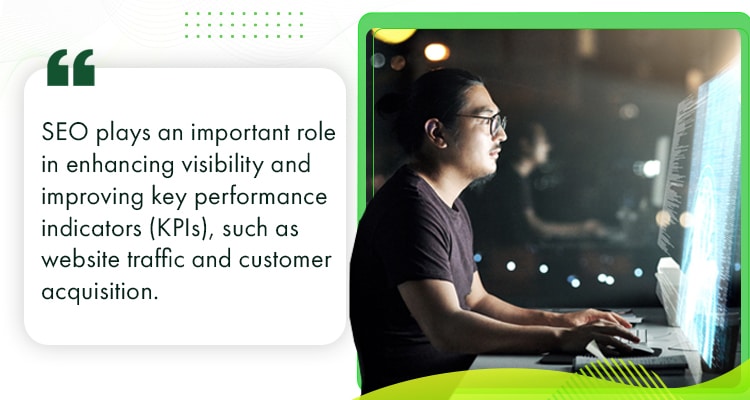Before Acer Computers Australia experienced impressive growth, they faced several significant challenges in their digital strategy.
Like many large brands, Acer struggled with limited online visibility, which translated into fewer leads and a lower organic search presence. Their website wasn’t optimised effectively for search engines, and they lacked a robust SEO strategy to capture relevant traffic.
This led to poor conversion rates, hindering their ability to compete effectively in the crowded tech market. Their pain point was clear—without a strong presence in search engine results, Acer was missing out on a massive pool of potential customers.
By leveraging the power of SEO, Acer was able to turn the situation around. They partnered with an SEO agency that conducted a full technical SEO audit, optimised their website for relevant keywords, and implemented a strategic content marketing plan.
This effort improved their website’s searchability, fixed technical issues, and boosted their visibility in organic search results. As a result, Acer Computers Australia experienced remarkable growth by harnessing the power of SEO, achieving a 287% increase in organic traffic and a surge in online sales.
This success story demonstrates the impact a well-executed SEO strategy can have on a business’s digital presence – and bottomline.
For most businesses with an online presence, SEO plays an important role in enhancing visibility and improving key performance indicators (KPIs), such as website traffic and customer acquisition.
However, choosing the right SEO specialist is essential for aligning your SEO strategy with long-term goals for sustainable growth through increased organic traffic.

So, what should you look for in an SEO specialist? Read on and find out.
Understanding SEO Basics
Whether you are aiming to boost organic traffic, improve domain authority, or enhance your KPIs, understanding the fundamentals of SEO will help you better evaluate your needs – and ultimately, the candidates who’ll apply to be your SEO specialist.
Defining the role of an SEO specialist.
An SEO specialist is responsible for optimising your website to improve its visibility on search engines, ultimately increasing your organic traffic and enhancing overall performance.
Key responsibilities include:
- On-Page SEO. Making sure that content is optimised with relevant keywords, meta tags, headers, and internal links.
- Off-Page SEO. Building quality backlinks to improve domain authority and search engine rankings.
- Technical SEO. Performing a technical SEO audit, optimising site speed, implementing sitemaps, and schema markup to enhance crawlability.
- Local SEO. Focusing on local SEO strategies to improve visibility in location-specific searches, which is particularly important for Australian businesses serving regional markets.
Importance of on-page, off-page, technical, and local SEO for businesses in Australia.
For Australian businesses, a holistic SEO approach that includes on-page, off-page, technical, and local SEO is crucial to staying competitive in the local market.
Here’s why each element matters:
1. On-Page SEO focuses on optimising the content and structure of your website. It includes elements like content optimisation (making sure that keywords are relevant and strategically placed) and meta tags (improving click-through rates by making your content more attractive to users and search engines).
Well-optimised on-page content helps improve search rankings and user engagement.
2. Off-Page SEO involves building your site’s authority and reputation through quality backlinks from credible sites. This can significantly improve your domain authority, boosting your overall search engine ranking.
Off-page SEO also includes social signals, reviews, and influencer marketing, all of which help increase your site’s visibility beyond the web pages themselves.
3. Technical SEO guarantees that your website is technically sound, making it easy for search engines to crawl and index your site. Critical aspects include site speed, mobile optimization, and secure HTTPS protocols.
Implementing sitemap and schema markup can further enhance your site’s visibility by making it easier for search engines to understand and display your content.
4. Local SEO is vital for businesses looking to target customers in specific geographical locations. With the help of a local SEO expert, your business can rank higher in location-based searches, ensuring that customers in your area can easily find you.
This is especially important for businesses with physical locations or service areas in Australia.
By implementing a well-rounded SEO strategy that includes these four elements, businesses can significantly improve their organic traffic, boost KPIs, and gain an edge over competitors in the Australian market.
Key Skills to Look For in an SEO Specialist
When hiring an SEO specialist for your business, it is important to evaluate a range of skills that will help boost your website’s performance.
These skills keep your SEO strategy comprehensive and results-driven, improving your overall KPIs and organic traffic.

Below are some of the essential skills you should prioritise when evaluating potential candidates.
Technical SEO Skills
A strong foundation in technical SEO keeps your website optimised for search engine crawling and indexing. Key technical skills to look for include:
- Website Audits. The ability to perform comprehensive audits to identify areas that need improvement.
- Crawl Errors. Experience in fixing crawl errors to guarantee search engines can easily access your website content.
- Sitemap Creation. Knowledge of creating and updating sitemaps to improve your site’s structure and crawlability.
- Schema Markup. Proficiency in implementing schema markup to help search engines understand your site’s content and improve visibility in rich snippets.
- Site Speed and Mobile Optimisation. Ensuring that the site loads quickly and is optimised for mobile devices.
Content Optimisation Skills
Content optimisation plays a significant role in driving organic traffic and improving your search engine rankings. An SEO specialist should excel in:
- Keyword Research. Identifying the right keywords to target based on search volume, competition, and relevance to your audience.
- Content Optimisation. Enhancing content with strategic keyword placement and making sure it aligns with SEO best practices.
- Meta Tags and Descriptions. Crafting effective meta tags and descriptions to increase click-through rates and improve rankings.
- Internal Linking Strategies. Structuring internal links to distribute page authority and guide visitors through your site effectively.
Link-Building Strategies
Link-building is a crucial off-page SEO tactic that enhances your website’s authority. Look for an SEO specialist who understands:
- Acquiring High-Quality Backlinks. Building high-quality backlinks from authoritative websites to improve your site’s credibility and rankings.
- Improving Domain Authority. Implementing strategies to improve domain authority through natural and ethical link-building practices.
- Outreach and Relationship Building. Ability to build relationships with other sites to create link-building opportunities.
Local SEO Knowledge
For businesses looking to target specific geographical areas in Australia, local SEO knowledge is essential. A specialist should be proficient in:
- Google My Business. Optimising your Google My Business listing to improve local search visibility.
- Local Citations. Building and managing local citations in directories to boost your online presence in local search results.
- Geo-Targeted Keywords. Utilising geo-targeted keywords to attract customers from specific Australian regions.
Analytical and Reporting Skills
An effective SEO strategy requires continuous analysis and refinement based on data. A qualified SEO specialist should excel in:
- KPIs and SEO Reports. Tracking and reporting on KPIs such as organic traffic, rankings, and conversions.
- Organic Traffic Growth. Monitoring and reporting changes in organic traffic to assess the effectiveness of SEO efforts.
- Bounce Rate. Identifying and addressing issues that cause high bounce rates allows visitors to remain engaged with your content.
- Ranking Improvements. Regularly updating you on ranking improvements and adjusting strategies accordingly.
If the SEO specialist you hire possesses these essential skills, they are better-equipped to optimise your website’s performance and demonstrate measurable growth for its organic traffic and other relevant KPIs.
Industry-Specific Experience
When hiring an SEO specialist, pick one with experience working in your industry.
The SEO strategy for an eCommerce business will differ significantly from that of a real estate firm’s, and industry knowledge can have a substantial impact on your results.
An SEO specialist who understands the unique challenges of your field will be better-equipped to tailor strategies to suit your business needs more effectively.
Importance of industry knowledge.
Having industry-specific knowledge enables an SEO specialist to create more targeted campaigns that address the nuances of your market.
Here are a few examples:
1. eCommerce SEO
- Focus on product page optimisation, improving conversion rates, and integrating user reviews to boost rankings.
- Utilisation of structured data like schema markup for product categories to enhance search visibility.
- Keyword strategies targeting buyer intent, often involving longer-tail keywords that lead to immediate purchases.
2. Real Estate SEO
- Emphasis on local SEO to drive traffic from location-specific searches (e.g., “houses for sale in Melbourne”).
- Strong reliance on geo-targeted keywords and optimising property listings for better local visibility.
- Implementing Google My Business to enhance your business’ presence in map searches for real estate offices or agents.
3. Professional Services (Law, Finance)
- Focus on content optimisation for blog posts and service pages that highlight expertise.
- Building quality backlinks from industry-relevant sites to improve domain authority and trustworthiness.
- Implementing technical SEO to ensure a user-friendly, fast-loading website.
Understanding the Australian market.
Beyond industry-specific knowledge, it is equally important that the SEO specialist you hire has a strong understanding of the Australian market.

This entails an in-depth knowledge of local consumer behaviour, competitive analysis, and regulatory standards. The Australian market has its own unique dynamics, from search trends to local competition, that differ from other regions.
- Local SEO expertise is essential for businesses aiming to target specific regions in Australia. An SEO specialist should understand how to leverage geo-targeted keywords and use local citation management to help your business rank higher in search results for Australian users.
- Cultural relevance plays a significant role in content marketing and SEO strategies. Your SEO specialist should be familiar with Australian terminology and consumer preferences so the content resonates with local audiences.
- Understanding Australian competitors is key to positioning your business effectively. An experienced SEO specialist can conduct in-depth competitive analysis, revealing the strengths and weaknesses of your competitors and helping you develop strategies to outperform them.
Qualities of a Reliable SEO Specialist
Hiring the right SEO specialist for your business means finding someone who can maintain a professional relationship built on transparency and proven results.
Let’s explore the essential qualities that distinguish a top-notch SEO specialist.
Transparency and Communication
Clear and consistent communication is crucial for an effective SEO partnership. A reliable SEO specialist should:
- Provide Regular Updates. Keep you informed on the progress of your SEO efforts through scheduled updates, making you aware of how your KPIs and organic traffic are improving.
- Offer Clear Reporting. Deliver detailed yet understandable SEO reports, including insights on on-page SEO, off-page SEO, technical SEO audits, and other critical metrics.
- Be Open About Strategies. Discuss their approach, from content optimisation to quality backlinks, so you know what steps are being taken and how they align with your business goals.
- Be Very Responsive. A trustworthy SEO specialist should respond within a reasonable time and be willing to address any concerns or queries about your website’s SEO.
Adaptability and Continuous Learning
To succeed in Australia’s competitive digital landscape, an SEO specialist must stay informed about the latest trends and algorithms. Here’s what to look for:
- Up-to-Date with SEO Changes. SEO is constantly evolving. A reliable specialist stays on top of new trends, algorithm updates, and best practices to keep your business competitive.
- Adapt Strategies for Local SEO. For businesses targeting specific regions, a specialist should leverage local SEO techniques like geo-targeted keywords and Google My Business optimisation to rank higher in local searches.
- Tailor Content to Local Audiences. Your specialist should guarantee content is relevant to consumers, using appropriate local terminology and addressing region-specific needs.
Proven Track Record
When evaluating potential SEO specialists, it is important to assess their past work and results. Here’s what to look for:
- Case Studies. Look for detailed case studies showcasing how they improved organic traffic, KPIs, and domain authority for previous clients.
- Client Testimonials. Positive feedback from past clients is generally a good indicator of the specialist’s skills, reliability, and professionalism.
- Measurable Results. Make sure they can demonstrate success through tangible metrics like higher search rankings, improved domain authority, increased organic traffic, and better ROI on SEO investments.

By prioritising these qualities, you’re better equipped to hire an SEO specialist with transparency, market knowledge, and a proven ability to deliver results.
Questions to Ask When Hiring an SEO Specialist
Asking the right questions better equipes you to hire an SEO specialist that’s aligned with your business objectives and can deliver results.
Example Questions
Here are a few key questions to guide your evaluation process:
1. What SEO tools do you use? Find out which tools they rely on for tasks like keyword research, technical SEO audits, and link-building. Common tools include SEMrush, Ahrefs, and Google Search Console.
2. How do you approach local SEO? Make sure they have experience in local SEO, particularly for targeting Australian regions with geo-targeted keywords and local citations.
3. What’s your process for tracking KPIs and SEO performance? A good SEO specialist should have a good system for regularly monitoring and reporting on KPIs, organic traffic, and ranking improvements.
4. Can you share examples of past successes? Ask for case studies or client testimonials showcasing measurable results like increased organic traffic and improved domain authority.
5. How do you stay updated with SEO trends and algorithm changes? Make sure they keep pace with the rapidly changing SEO landscape to maintain your website’s competitiveness.
Red Flags to Watch Out For
When hiring an SEO specialist, you need to be cautious of practices that could harm your business. Look out for these red flags:
- Black-Hat Techniques. Avoid any specialist who uses unethical strategies such as keyword stuffing, link farming, or purchasing low-quality backlinks. These techniques can result in penalties from search engines.
- Lack of Transparency. If they are unwilling to explain their strategies or provide regular updates, it is a major warning sign. Transparency is key to a successful SEO partnership.
- No Local SEO Experience. If your business relies on local customers, make sure the specialist has proven experience with local SEO, including optimising Google My Business and using geo-targeted keywords.
- Overpromising Results. Be wary of anyone who guarantees instant or unrealistic results. SEO is a long-term investment, and success takes time.
FAQS
When working with an SEO specialist, you may have several questions about how to explore SEO trends and best practices for the long-term success of your business. Here are some frequently asked questions to help guide you through the process:
What are the latest SEO trends in Australia I should be aware of?
Staying updated on SEO trends is crucial for maintaining a competitive edge, especially if you are not deeply familiar with SEO. Examples include:
- Voice search optimisation helps businesses target users who use Google with voice commands, a segment which is rapidly growing.
- Mobile-first indexing guarantees your site ranks well by prioritising mobile compatibility given that the majority of searches are now done on mobile devices.
- Focusing on UX signals like fast load times and mobile responsiveness can reduce bounce rates, keep visitors engaged, and improve overall search rankings.
Should my SEO specialist help with social media as part of the SEO strategy?
While social media doesn’t directly impact SEO rankings, an effective SEO specialist should understand its role in driving traffic, improving brand visibility, and supporting off-page SEO through social signals and backlinks.
However, keep in mind that an SEO specialist and a social media manager are completely different roles that also require different sets of skills.
How can I protect my business from penalties or bad SEO practices?
Avoid black-hat techniques, like those mentioned in the previous section and work with a specialist who is transparent about their methods and stays updated on algorithm changes. Make sure that your SEO specialist adheres to white-hat SEO practices which include:
- Quality Content Creation. Crafting high-quality, relevant, and original content that provides value to users is the cornerstone of white-hat SEO.
- Keyword Optimisation. Properly researching and using keywords naturally in content, meta descriptions, and headers is key to white-hat SEO. The focus should be on enhancing the user experience rather than overloading keywords (keyword stuffing).
- Building Organic Backlinks. Earning backlinks from authoritative websites through natural means—like guest blogging, partnerships, or creating shareable, high-quality content—improves domain authority and search rankings.
- Mobile Optimisation. Your website should be responsive and perform well on mobile devices. This practice enhances user experience and helps maintain search rankings.
- Technical SEO. Conducting technical audits to address issues like crawl errors, page speed, and site structure guarantees search engines can easily crawl and index your site.
Final Thoughts
Choosing the right SEO specialist is essential for your long-term business growth – especially in a world where more and more transactions are being carried out online.
From on-page and off-page SEO to Local SEO and technical SEO audit services, the specialist you hire should have the necessary skills and a proven track record of delivering results.

Prioritizing qualities like transparency, industry knowledge, and a solid understanding of the Australian market will ensure you find the right expert to boost your organic traffic and improve KPIs.
At Remote Staff, we connect you with top SEO specialists who can take your business to the next level.
Click here to schedule a callback today.
For more references that will help you grow your business — check out the links below!
- Want FREE AI Prompts for Different Areas of Your Business? Check out these 100 AI prompts.
- How About More Ideas for Surprising Indirect Marketing Activities to Take Your Business Further? Click here.
- Ready to Build a FULLY Remote Team with the Right People? Click here.
- Check Out Our 1,000 Fully Vetted and Highly Talented Staff here.
Darren Aragon is a multifaceted writer with a background in Information Technology, beginning his career in research at Pen Qatar and transitioning through customer service to a significant role at Absolute Service, Inc. His journey into freelance writing in 2021 has seen him excel across various niches, showcasing his adaptability and deep understanding of audience engagement.




















